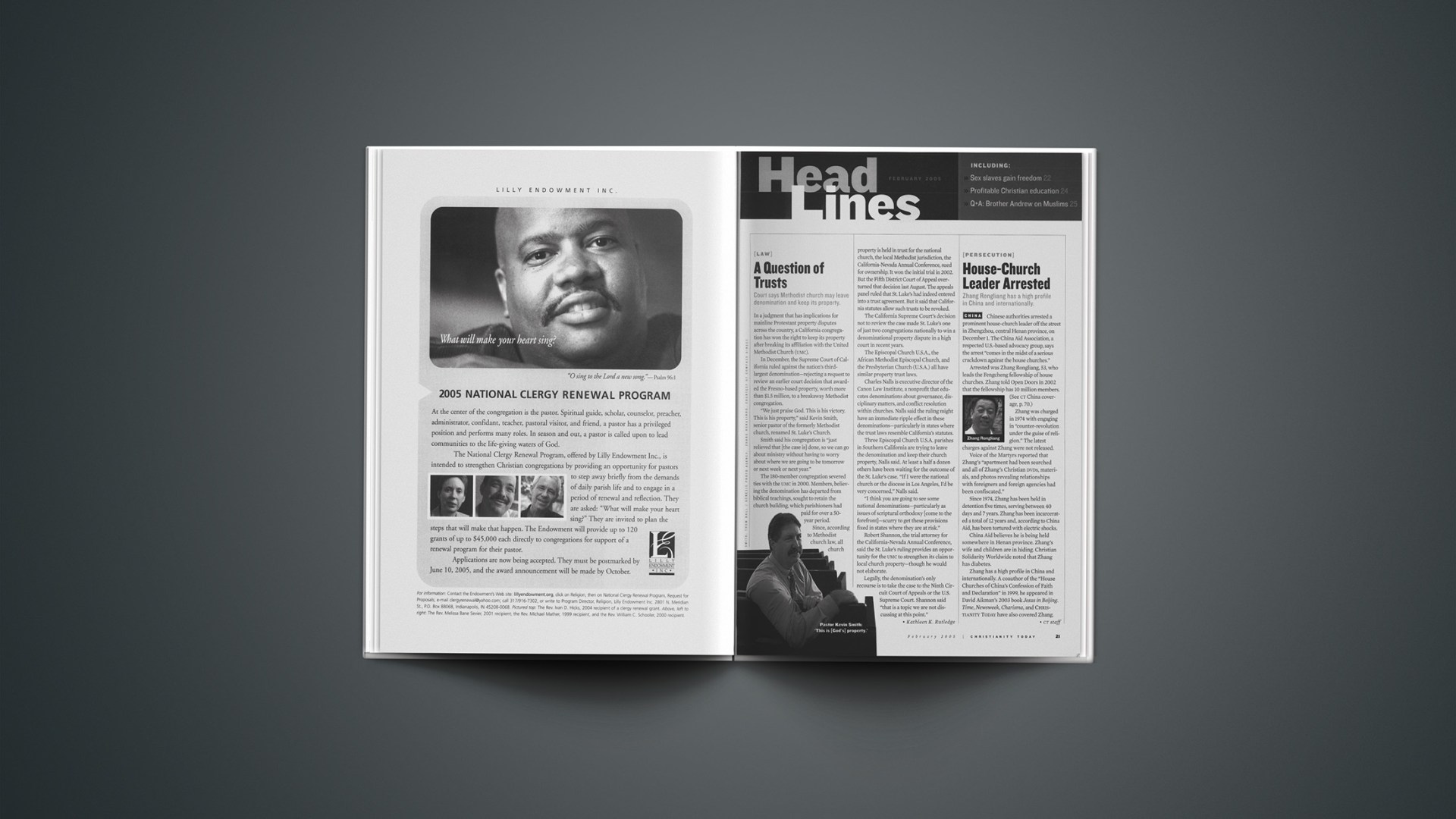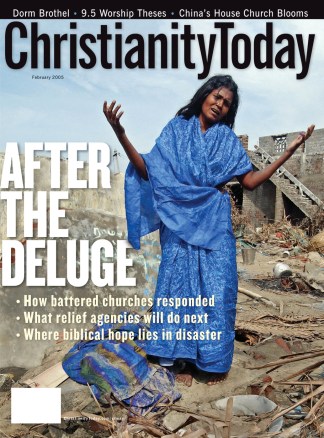In a judgment that has implications for mainline Protestant property disputes across the country, a California congregation has won the right to keep its property after breaking its affiliation with the United Methodist Church (UMC).
In December, the Supreme Court of California ruled against the nation’s third-largest denomination—rejecting a request to review an earlier court decision that awarded the Fresno-based property, worth more than $1.5 million, to a breakaway Methodist congregation.
“We just praise God. This is his victory. This is his property,” said Kevin Smith, senior pastor of the formerly Methodist church, renamed St. Luke’s Church.
Smith said his congregation is “just relieved that [the case is] done, so we can go about ministry without having to worry about where we are going to be tomorrow or next week or next year.”
The 180-member congregation severed ties with the UMC in 2000. Members, believing the denomination has departed from biblical teachings, sought to retain the church building, which parishioners had paid for over a 50-year period.
Since, according to Methodist church law, all church property is held in trust for the national church, the local Methodist jurisdiction, the California-Nevada Annual Conference, sued for ownership. It won the initial trial in 2002. But the Fifth District Court of Appeal overturned that decision last August. The appeals panel ruled that St. Luke’s had indeed entered into a trust agreement. But it said that California statutes allow such trusts to be revoked.
The California Supreme Court’s decision not to review the case made St. Luke’s one of just two congregations nationally to win a denominational property dispute in a high court in recent years.
The Episcopal Church U.S.A., the African Methodist Episcopal Church, and the Presbyterian Church (U.S.A.) all have similar property trust laws.
Charles Nalls is executive director of the Canon Law Institute, a nonprofit that educates denominations about governance, disciplinary matters, and conflict resolution within churches. Nalls said the ruling might have an immediate ripple effect in these denominations—particularly in states where the trust laws resemble California’s statutes.
Three Episcopal Church U.S.A. parishes in Southern California are trying to leave the denomination and keep their church property, Nalls said. At least a half a dozen others have been waiting for the outcome of the St. Luke’s case. “If I were the national church or the diocese in Los Angeles, I’d be very concerned,” Nalls said.
“I think you are going to see some national denominations—particularly as issues of scriptural orthodoxy [come to the forefront]—scurry to get these provisions fixed in states where they are at risk.”
Robert Shannon, the trial attorney for the California-Nevada Annual Conference, said the St. Luke’s ruling provides an opportunity for the UMC to strengthen its claim to local church property—though he would not elaborate.
Legally, the denomination’s only recourse is to take the case to the Ninth Circuit Court of Appeals or the U.S. Supreme Court. Shannon said “that is a topic we are not discussing at this point.”
Copyright © 2005 Christianity Today. Click for reprint information.
Related Elsewhere:
More elsewhere about St. Luke’s Church includes:
Fresno church wins legal fight for property | St. Luke’s Community Church in west-central Fresno can leave the United Methodist Church and retain control of its property, according to a court action Wednesday. (Fresno Bee, December 3, 2004)
Court: Embattled church can keep land | A Fresno congregation that quit the United Methodist Church has been granted ownership of its property under a unanimous state appeals court ruling that overturned a lower court. (Associated Press, September 9, 2004)
More articles on property disputes and other United Methodist tussles from our Church Life include:
So, Who Owns the Sanctuary? | Dissenting mainline churches struggle to retain their property. (Sept. 17, 2004)
Pondering a Divorce | Some United Methodists think their differences are irreconcilable. (July 01, 2004)
Methodists Back Away from Breakup | Evangelicals shelve call for ‘amicable separation.’ (May 07, 2004)
United Methodist Conservatives Seek ‘Amicable’ Split | Despite gains, evangelicals say Methodist divisions over homosexuality are ‘irreconcilable.’ (May 06, 2004)
Methodists Strengthen Stand Against Homosexual Practice | Lesbian pastor may not be reappointed. (May 05, 2004)
Lesbian Is Eligible for Reappointment, Bishop Says | Differing interpretations of Methodist court ruling prolong denomination’s fight. (May 06, 2004)
Weblog: Methodist Council Says Homosexuality Is ‘Incompatible’ with Christian Teaching (May 03, 2004)
Flouting Church Law | Two gay controversies likely to dominate United Methodist General Conference this week. (May 2004)
A Methodist Mob Mugging | There are real victims in the farce that was the Methodist church trial of a lesbian minister. (March 25, 2004)
Weblog: Methodist Court Acquits Homosexual Minister (March 22, 2004)
Weblog: Methodist Trial Opens With Arrests, Comparison to Crucifixion (March 18, 2004)










